
 Reading, Short And Deep #016
Reading, Short And Deep #016
Eric S. Rabkin and Jesse Willis discuss The House by Fredric Brown.
The House was first published in Fantastic, August 1960.
Here’s a link to the PDF of the story.
Posted by Scott D. Danielson

 Reading, Short And Deep #016
Reading, Short And Deep #016
Eric S. Rabkin and Jesse Willis discuss The House by Fredric Brown.
The House was first published in Fantastic, August 1960.
Here’s a link to the PDF of the story.
Posted by Scott D. Danielson

 The SFFaudio Podcast #334 – The Birth-Mark by Nathaniel Hawthorne; read by Fred Heimbaugh. This is an unabridged reading of the story (50 minutes) followed by a discussion of it. Participants in the discussion include Jesse and Fred.
The SFFaudio Podcast #334 – The Birth-Mark by Nathaniel Hawthorne; read by Fred Heimbaugh. This is an unabridged reading of the story (50 minutes) followed by a discussion of it. Participants in the discussion include Jesse and Fred.
Talked about on today’s show:
The Pioneer, March 1843, a Hawthorne Poe fest, contemporaries, The Scarlet Letter, a quote by Poe about Hawthorne, the CBS Radio Mystery Theater, well known?, why this story Fred?, he’s obsessed with sin, sociopaths, trigger warnings, neurosis, shame, luck, shaped by sin, a mark upon the family, subconscious Freudian messages, Commentary Magazine, Why College Kids Are Avoiding the Study of Literature by Gary Saul Morson, textual density, vocab, Lovecraft poems, Fungi From Yuggoth poems, harbours, kids are now shuttled between school the home and the mall, ranting against Hawthorne, The House Of The Seven Gables, revolutions in 20th century literature, Ernest Hemingway, the show don’t tell revolution, Hawthorne is the telling-est teller who ever telled, the right attitude toward sin, the two facedness of people, Hawthorne is attacking late stage decadent Puritanism, a homosexual vibe, what is the lesson?, science reaches too far?, Gothic horror, the evil wizard or the mad scientist, science as the channel to unlimited power, elixirs, potions, not even futuristic, Georgiana, Aminadab?, where is this story set?, Aylmer’s castle, Aylmer’s wealth, a compartmentalized life, from the third person POV, the host narration, obsession, the left side, the sinister side, she’s been marked, in the dream, chemical means, pre-Darwin, “I’ve got these old books”, Mary Shelley’s Frankenstein, a natural philosopher, science vs. alchemy vs. magic, Isaac Newton, almost as if he was Ben Franklin, electricity, many suitors, Aylmer’s wooing, is Aylmer gaslighting Georgiana?, she’s reading, a Medieval heroine, a character of of Greek mythology, is a sex-change story?, is this a boob-job story?, envy, the tips of two small fingers, she’s compared to a marble statue, small pox scars, Marilyn Monroe‘s beauty mark, does positioning matter?, Supernatural Horror And Literature by H.P. Lovecraft, a meditation on obsession, many uninteresting analysis, so little action, beyond the sexual interpretation, Hawthorne doesn’t seem all that prudish, how far can you go in purist of perfection in a fallen world, a mark of original sin, wanting knowledge (of good and evil?), the sin of disobedience, Frankenstein and Aylmer are reading the same books, the process of creating a man in Frankenstein, the lightning bolt, Luigi Galvani, grave-robbing, Paracelsus, the gold thing is your way of getting funding, when writing a grant…, this might lead to a cure for cancer(!), alchemy as a religion, The Cask Of Amontillado, Eric S. Rabkin, “the niter, it grows”, Montresor or Fortunato, niter, growing human shaped things inside of bottles, poisons, psychology and the occult, the difference between alchemy and science is openness, the Royal Society, Harry Potter’s school, there have to be muggles, magically oblivious, J.K. Rowling, natural greed, the ethic of sharing knowledge, France’s version of the Royal Society, like the obsession with “open source” or the “public domain”, The Oval Portrait by Edgar Allan Poe, sooo lifelike, sooo beautifully painted, Gothic horror, the evil mad scientist is destroyed by the power he unleashes, The Portrait Of Dorian Gray by Oscar Wilde, the ending, what is Hawthorne saying?, was Aylmer’s attempt doomed from the beginning?, Jesse’s mom, one of the most important powers of a teacher, she has “THE VOICE”, Muad’dib (Paul Atredies), Steve Jobs’ reality distortion field, a profound revelation, philosophy and critical thinking, vitamins are bullshit, fish oil woke Fred’s brain, North America has the world’s most expensive urine, religion wants you to take it on authority, bronze age holy texts, religion as book club where you only ever read one book (or just listen to a guy who did), cynicism or wisdom, loyalty to the organized religion of your family, inherited religions, fundamentalist belief systems, the narcissism of small differences, splintering, revolting revolutionaries, purity of doctrine, young earth creationists, Catholicism as an almost ethnicity (an identity), Hawthorne as a stopgap between H.G. Wells and Mary Shelley, the murky origins of Science Fiction, Dante, Lucifer frozen in the ice, a Gothic ghost story, Frankenstein’s obsession is with defeating death, too in love with science, Hawthorne’s message is like: “don’t drink too much”, Greek symposia, what really happened at a Greek symposium, “write drunk and edit sober”, The Odyssey, mixing water with wine, getting plastered is a sign on unmanning, the Greek obsession was with finding the moderation between too little and too much, what was Hephzibah’s sin?, her sin is being too worried about sin, “you will eat blood”, public shaming is a little much, be moderate with your casting of sin, John Wesley, a healthy functioning society, wealth corruption, falling into decadence, the protestant work ethic is kicking-in, Guggenheim, ransoming the grandchild, leaving it all to art, Andrew Carnegie, John D. Rockefeller, Fred’s all time favourite Science Fiction novel: The Diamond Age by Neal Stephenson, how do we raise the next generation?, a supercharged Kindle, matter compilers, Star Trek‘s replicator, eating green sludge, window panes made out of pure diamond, handmade hipsters, how you raise the next generation in a wealthy society, we are unimaginably wealthy, are Japan’s young people uninterested in sex?, Richard Dawkins on Twitter, The Last Question by Isaac Asimov, Gothic-y, Science-y, Microcosmic God by Theodore Sturgeon, a great inventor, Neoterics, he’s stealing their ideas, the ultimate mad scientist story, following in the tradition, somatoypes, ectomorph (Aylmer), mesomorph (Aminidab), endomorph (Jesse), it’s a scam!, Hillary Clinton, the Ronald Reagans of the world, this is astrology, people think that once you’ve got a word for something you understand it, wearing the mask long enough…, IQ tests, quantification, any time we think we understand the most complex thing in the universe…, there really is a subconscious, tweeting dreams, psychology, the book club with only one book in it, The Great Courses (The Teaching Company), Eric S. Rabkin, survey courses, kooky specializations, the best way to learn, the perennial student, taught not to learn, philosophy of art, credentialism, Jesse can guess the exact words in a student’s vocabulary, guess your weight or age, how Jesse gets work, gaming credentialism, no high school diploma, a contempt for institutionalized learning, a play-by-the-rules personality, grade inflation, what did Mussolini do?, intimidation vs. cultivation, give the students the experience of reading, reading as a meeting of minds, defending a dissertation, essays, we’re obsessed with essays (for the wrong reason), ohhh spoilers!, the big problem with almost any media, “I don’t want to spoil it for you.”, testing is easier, a kind of objectivity, don’t blame the actors for shitty Hollywood movies, status is society, education as the cultivation of minds, there aren’t enough people who are willing to rebel!


Posted by Jesse Willis

 The SFFaudio Podcast #318 – Jesse, Mr Jim Moon, Bryan Alexander, and Fred Himebaugh talk about The Thirty-Nine Steps by John Buchan
The SFFaudio Podcast #318 – Jesse, Mr Jim Moon, Bryan Alexander, and Fred Himebaugh talk about The Thirty-Nine Steps by John Buchan
Talked about on today’s show:
1915, Blackwood’s Magazine, a propaganda novel, the propaganda ministry, pro-empire, Buchan’s later job, Hitchcock’s The 39 Steps, the Orson Welles adaptation, Mercury Theater, Welles’ propaganda pieces, Nazis invading Canada (Nazi Eyes On Canada), ultima thule, if Operation Sea Lion had worked…, Nazis in Antarctica, Kerguelen Islands, Isle de Crozet, the coolest island ever, Jules Verne, why does our hero go to Scotland?, veldcraft, Greenmantle, Richard Hannay, the comic, Brian thought it was a riot, a brisk read, elegant prose, the BBC Radio documentary on John Buchan, judging everything, “subjective”, coincidences, sooo convienient, the human civilization, The Riddle Of The Sands by Erskine Childers, another sneaky German plot, the Patrick O’Brian books, the invasion novel genre, mining British harbours, u-boats, a shocking incident, Scapa Flow, Winston Churchill, Rogue Male by Geoffrey Household is the WWII version of The Thirty-Nine Steps, Constantine Karolides, war was inevitable, popular in the trenches?, Hannay eats well on the run, cliffhangers, Adrian Praetzelis, a semi-bald archaeologist, Jesse’s dream theory, tired of London …. not enough exercise … lo and behold a murder plot… sleep and dream and wake, a Freudian sense of everything being really nearby, the climax became surreal, Do Androids Dream Of Electric Sheep?‘s fake police station, how to deal with those in between, The Prisoner Of Zenda, “honestly this is impossible”, boys own adventure, James Bond, Dracula, how do these things work in detail, I’m pretty good with disguise, a sign of good writing, villain to do lists, don’t lock the hero in a room filled with explosives, act like you belong there, the roadman scenes, the milkman was a precedent, disguise as psychology, ridiculous of imposture, the speaker at the liberal candidates meetings scene, Australia or free-trade, Asquith, Liberals, free-trade within the empire, as satisfying as a mortician, the eloquence of an emigration agent, a ripping speech Twizden, Hammond, something that always changes is the meaning of the title, the Black Stone (Schwartz Stein), when you’re Lord Tweedsmuir…, Jonathan Harker, ordinance survey maps, the corridors of power, having the power of the British Empire at your back, the reward, doubt about British command, yesterday 100 years ago, the Gallipoli campaign, unilateral disarmament, the secret pact, the French are hyper-competent, playing along, just go over the top, your reward is to go to the Western Front, Greenmantle is the direct sequel, the supremely confident at veldcraft, the Germans had found a Muslim prophet, Islam as a powder-keg, the Mesopotamian campaign, a very personal battle while armies clash, a secret history, Jonathan Strange & Mr Norrell by Susanna Clarke, The Duelists by Joseph Conrad, His Majesty’s Dragon by Naomi Novik, The Red Panda Adventures by Gregg Taylor, Scott Pilgrim Vs. The World, Captain Canuck, Declare by Tim Powers, Kim Philby, Brian’s WWI kick, the Eastern front (Turkey vs. Russia), Duel For Kilimanjaro: Africa 1914-1918, Paul von Lettow-Vorbeck, the opening antisemitism (an international banking conspiracy) is just a smokescreen, crazy conspiracy theories, you only believe the unbelievable tale, a wink to the audience, The Protocols of the Elders of Zion, The United States Of Paranoia by Jesse Walker, the “stab in the back theory”, conspiracies, the Black Hand, seeing the novel in its context, period magazines, stepping into a time machine, having perspective, don’t have secret treaties with France, a landward in Asia, The DaVinci Code, The Grove of Ashtaroth, the Canaanite goddess, Rhodesia, clearing of the land, a weird fiction version of colonialism, Buchan wrote 101 books, Witch Wood (BBC Radio drama), big in to Buchan, Huntingtower, Mr Standfast, The Wasteland by T.S. Elliot, Lovecraft’s parody “Wastepaper”, a pre-modern guy, unthinking ideas, a moral victory over the enemy, panache or élan, Memory Hold-the-Door by John Buchan, Canada’s current Governor General (David Johnston), Hillary Clinton’s autobiography, “chloroform in print”, Mark Twain, Fred’s novel is in beta (The Devil’s Dictum), wait fifty years and read the Wikipedia entry, our assessment of things, Shakespeare was too sad or too gory, why teach Julius Caesar? because it has no sex, the Hugos blew up, Ancillary Justice, changing the markets, Bowdlerizing the past, The Tempest, classic science fiction info dump, Miranda is falling asleep, Mr Jim Moon’s take on The Thirty-Nine Steps, the mystery run-around, the Jason Bourne films, stalking on-the-run travelogue format, Ian Fleming, Dennis Wheatley, a British form of pulp, adaptations, North By Northwest, the 2008 TV adaptation the u-boat in a loch, Alfred Hitchock, The Man Who Knew Too Much, The Ring, the lack of women, adding women, shoveling women into adaptations, it’s all for Fred’s mom, there’s a gun in the pram, Hannay has an afro in the 1978 adaptation, the ministry of espionage, Mr Memory, the comics adaptation, a bridge to far, The Private Life Of Sherlock Holmes, with access to itching powder…, expansive imagination, in the Twilight books the heroine is a complete cipher, WWI books, WWII books, Armed Forces Editions, the post war interest in H.P. Lovecraft, Jack Vance in the South Pacific.
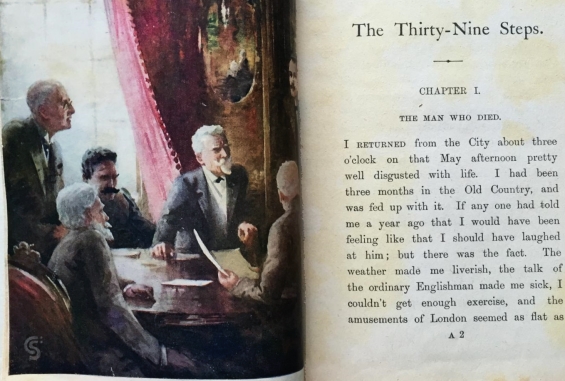


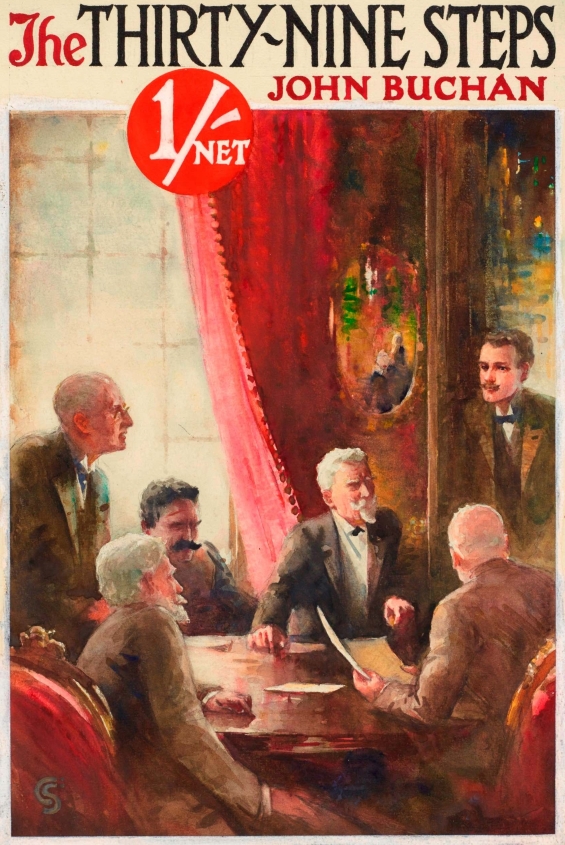
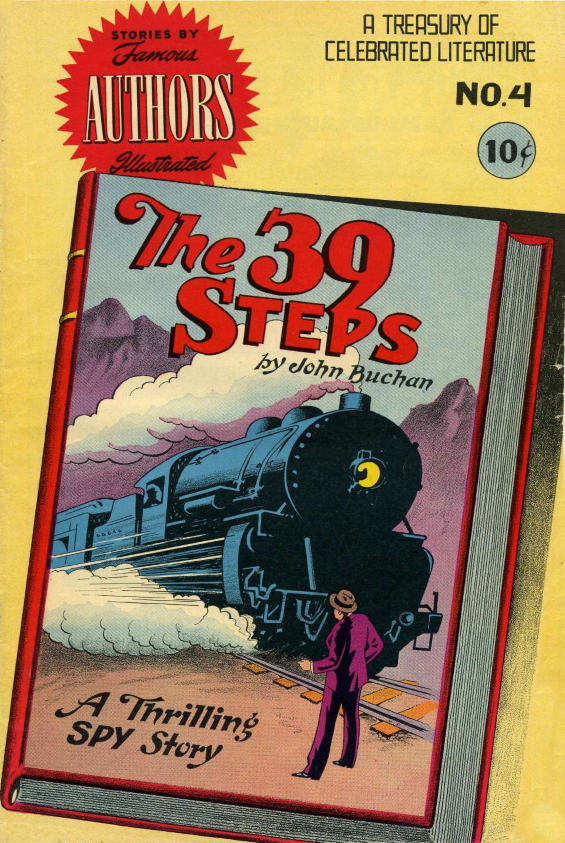
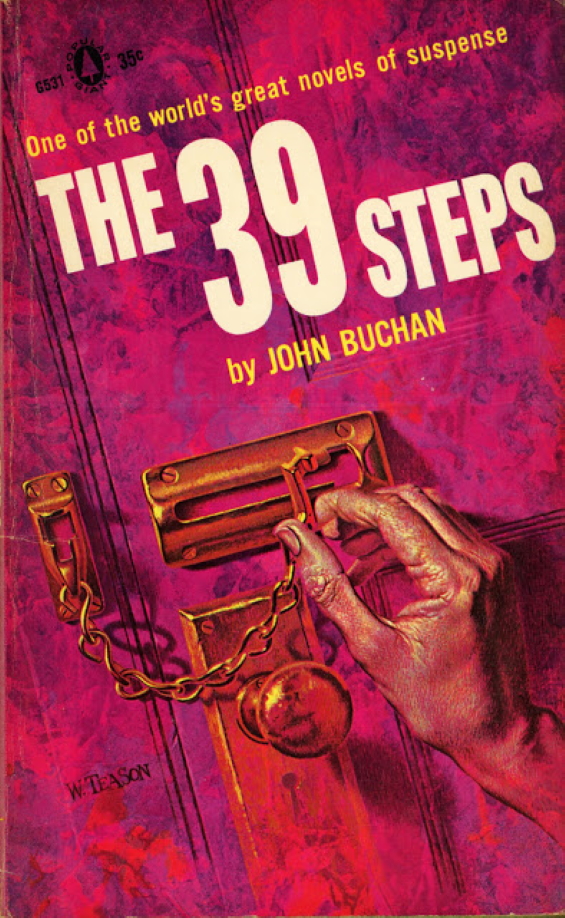
Posted by Jesse Willis

 The SFFaudio Podcast #291 – Jesse, Paul Weimer, and Marissa van Uden talk about Martian Time-Slip by Philip K. Dick.
The SFFaudio Podcast #291 – Jesse, Paul Weimer, and Marissa van Uden talk about Martian Time-Slip by Philip K. Dick.
Talked about on today’s show:
1964, first serialized as All We Marsmen, a pair of boxing insects, threads that lead nowhere, “a wonderful train-wreck of a novel”, the two audiobook versions, repeating scenes are disconcerting in the audiobook, repeating moments, at Arnie’s apartment, is this a byproduct of the writing process?, problems with marriage and plumbers, The Search For Philip K. Dick by Anne R. Dick, “Goodmember Arnie Kott Of Mars”, Chinatown, The Two Jakes, developers, Heliogabalus, time travel, the broken Friendly Dad robot, the school is monitoring, when you’re reading your Kindle Amazon is watching you, school is to make you conservative, preserving Earth culture, the time gate anthology, Robert Silverberg, autonomous robots, door to door salesmen, teaching machines, the different robot teachers, Immanuel Kant robot, with certainty he pointed down the hall, a western bias (the interests of Philip K. Dick), Aristotle, Abraham Lincoln, Julius, Winston Churchill, Tiberius, Thomas Edison, warfare, history, a million neat ideas, Philip II of Macedon, Alexander the Great, schizophrenia and autism, experiencing time at a different rate, derangement in a sense of time, A.D.D. and A.D.H.D., Camp BG, setting your watch by the stars and by the seasons, schizophrenia as a tendency but not a disability, daylight savings time, recipe for going to jail: act as if daylight savings isn’t real, its what the novel is about, the Soviets, an American Mars, a Bradburyian Mars, Martians as elves, the Bleekmen, water witch, hunter/gatherers nomadic culture, the “tame” Bleekman, the dream-quest is payback, a “pilg” (pilgrimage), Deus Irae by Philip K. Dick and Roger Zelazny, the trek through the desert, Tibor, Psychology Today, “oh, boy!”, thiotimoline, reconciling realities, “gubble gubble”, sharped tongued secretary, bicycles in outer space, she’s the predator, he’s the predator, Arnie and Manfred, sniffing around Doreen, they’re from the “TOMB WORLD”, Silvia is the most common female character name PKD uses, an analogy (or metaphor) for marriage, uppers and downers, drugs and coffee, back to the keyboard, Dr. Glaub is desperate to make some money, Dick’s own financial concerns, Anne, webbed fingers, inside the minds of horrible people, the dialogue driven sex scene is kinda creepy, why is she with this guy?, access to all the booze, why does Jack go back to his wife?, the perfunctory affairs are unbelievable, unredeemable, somehow it seems to all work, the Swiss rocket, Bleekmen are homo-sapiens, the S.M. Stirling Lords Of Creation novels, Mars as California, Australian aborigines, “dreamlines dreamsongs and dreamtime“, Ludwig Binswanger, psychiatry, psychology, Ellen had split her life, the “tomb world”,” degenerate and degenerating”, being trapped in your own body, “a narrowing a contracting”, gubble as a marker, Being John Malkovich, “Malkovich Malkovich Malkovich!”, our bodies with their low needs distract them from our purposes (if we have any), oblivious to suffering, depression, it’s all brain chemistry, anorexia, obsession with death, Mafred’s “sick” drawing, Amweb as the “tomb world”, the Manfred illustration, the nightmare woman, “her tongue wants to cut”, seeing into the future is seeing death, awesome imagery, a recurring image, The Minority Report, armless and legless (limbless characters), the movie adaptation of A Scanner Darkly, dialogue driven storytelling, what are they reacting to?, mental processes, “it was there to be found”, Virgil Finlay, reading it harder, a post apocalyptic zombie novel, building up a picture, open to being expanded, PKD is concise, most books aren’t dialogue driven, creative writing classes, showing off descriptive skills, novels vs. poetry, is J.R.R. Tolkien responsible for this?, a reverence for the landscape, what color is the dust?, visuals are everything has colonized Science Fiction and Fantasy in the last 30 years, eating meals and walking the landscape, this book isn’t a distraction from life, a meta-description of life, what makes this a SF story?, “the chamber”, the technology is your mind and your brain, even Mars isn’t very different, mars rats, what do the bleekmen hunt?, water witches!, does the water witch protect Jack?, the pistol, the real SF idea behind this is PKD is trying top figure out what déjà vu is, the “I know what is going to happen next” feeling, we are very poor at capitalizing on our future knowledge, the slipped gear, “Oh, little Jackie.”, Philip K. Dick’s science fiction is Psychology Today, an ansible, this problem in science and the social situation between these characters, lying in bed in a hypnagogic state, doing dream style processing of mental white noise in a semi-conscious state, “all different all equally true”, different angles, the broken mosaic, the fact that these books are dated doesn’t age the books, the Brilliance Audio audiobook narrated by Jeff Cummings, Grover Gardner (Tom Parker) narration of Martian Time-Slip, the bicycles floating into space, a horrible human being (he wastes water), Heliogabalus -> Helio (sun -> son) will Gabalus (gubble) less, Elagabalus, the religion of the Roman Empire, a scene, W.A. Mozart, “I love Mozart!”, Bruno Walter conducting, that hideous racket, encoding messages, Manfred Steiner, is this the sign?, they emerged from her pores, whoever’s perspective we see the scene from they all enter the “tomb world”, “teeming with gubbish”, “he wanted to bite her lip”, the pivot point, screeches, the screech of the bus, music, what do dogs think of music?, what do autistic people think of music?, trance music, a Dickian idea, music and sound, the bus brakes screech, “fire!”, bears at the zoo cavorting for peanuts, the suicide, “more evidence that Arnie is a horrible human being”, we just need a little bit of hope, Do Androids Dream Of Electric Sheep?, Galactic Pot-Healer, Fair Game by Philip K. Dick, The World Jones Made, there are 36 public domain Philip K. Dick stories, Time Out Of Joint (is Paul’s favourite Dick novel), a constructed town,













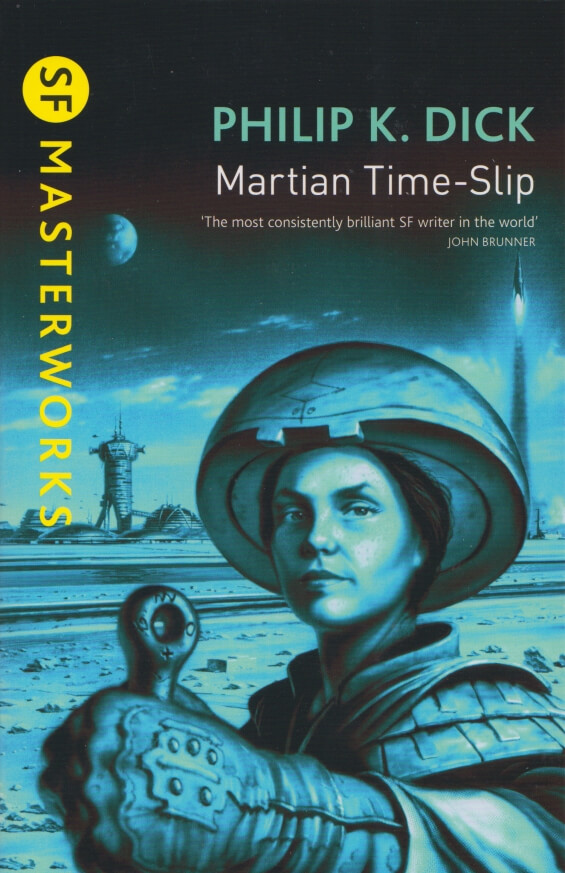

Posted by Jesse Willis


 The SFFaudio Podcast #281 – Jesse, Mr Jim Moon, and Bryan Alexander discuss Do Androids Dream Of Electric Sheep? by Philip K. Dick.
The SFFaudio Podcast #281 – Jesse, Mr Jim Moon, and Bryan Alexander discuss Do Androids Dream Of Electric Sheep? by Philip K. Dick.
Talked about on today’s show:
1968, science fiction by Philip K. Dick, Blade Runner, abridged version, audiobook, repetition of theme, an introductory novel to Philip K. Dick, The Man In The High Castle by Philip K. Dick, jam packed with action, one long day, the fake police station, a classic Dick move, how many androids are there in this book?, movies, androids, legitimate slavery, Luba, minority, androids v. slaves, reality of humans, psychological tests, visuals, dialogic science fiction, Wilder Penfield, The Terminal Man by Michael Crichton, mood organ, existential humor, satire, artificial, unbelievable world, endless competition, goat glands, Sydney’s Catalog, the BBC Radio 4 audio drama by Jonathan Holloway & Kerry Shale, parallel characters, undercut truth, an animal theme, religious allusions, Mercer, Unbreakable (M. Night Shyamalan), lurker, detective story, lack of world descriptions, less striking scenes in the movie, Galactic Pot Healer by Philip K. Dick, tomb world, fraud corpses, Mercer v. Jesus, lack of introduction in the movie, Frankenstein by Mary Shelley, the maker, hope of freedom, androids as fiends, humans yet not humans, what is the definition of human?, the question, the title, empathy to androids, Deckard’s predictions, Ubik by Philip K. Dick, predestination, fake things, simulacra, electrically modified ecology, emotional drug, consumerism, The Days of Perky Pat by Philip K. Dick, Nanny by Philip K. Dick, the vale of reality, the cuckoo clock in Blade Runner, layered symbols, visualizing future technologies, Kayla Williams, unobvious connections, paranoia, suspicion of government, The Exit Door Leads In by Philip K. Dick, unimportance of religious reality, environmental awareness, Silent Spring by Rachel Carson, dehumanization in war, androids = inverted human, Fahrenheit 451 by Ray Bradbury, television, The Veldt by Ray Bradbury, 1984 by George Orwell, podcasting, Metropolis (Fritz Lang), Max Headroom, “Five Minutes Into the Future”, The Red Room by H.P. Lovecraft, haunted media.








Posted by Jesse Willis

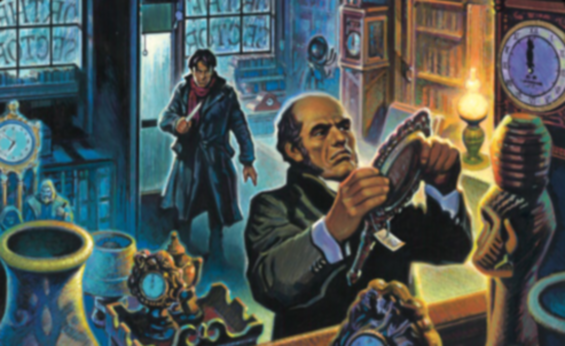
I’ve posted about Robert Louis Stevenson’s murderous classic, Markheim, before (the audiobook and another radio drama). But, I’ve just discovered a very good new adaptation (from 2006) available at RadioArchive.cc. The sound design is excellent, and its lengthy enough to bring out most of the nuance in the text.

 Markheim
Markheim
Adapted from the story by Robert Louis Stevenson; Adapted by John Taylor; Performed by a full cast
MP3 via TORRENT – Approx. 45 Minutes [RADIO DRAMA]
Broadcaster: BBC Radio 4
Broadcast: February 1, 2006
On Christmas Day 1886 with London shrouded in fog, a man shadows a girl across Blackfriars Bridge towards the back streets of Holborn. His name is Markheim and his intentions are unremittingly dark.
Directed by John Taylor
Cast:
Tommy – Mark Straker
Markheim – Jack Klaff
Girl – Abigail Hollick
Visitor – Anton Rodgers
Crispin – Anthony Jackson
And for German listeners there’s THIS sexy sounding version produced as a part of a cool series called Gruselkabinett (which translates to “Chamber of Horrors”).
As a bonus I offer this newly created |PDF| and a vintage anlaysisby C. Alphonso Smith from Short Stories Old And New (1916):
Setting:
There is no finer model for the study of setting than this story affords. It is three o’clock in the afternoon of a foggy Christmas Day in London. If Markheim’s manner and the dimly lighted interior of the antique shop suggest murder, the garrulous clocks, the nodding shadows, and the reflecting mirrors seem almost to compel confession and surrender. “And still as he continued to fill his pockets, his mind accused him, with a sickening iteration, of the thousand faults of his design. He should have chosen a more quiet hour.” So he should for the murder; but for the self-confession; which is Stevenson’s ultimate design, no time or place could have been better.Plot:
There is little action in the plot. A man commits a dastardly murder and then, being alone and undetected, begins to think, think, think. It is the turning point in his life and he knows it. Instead of seizing the treasure and escaping, he submits his past career to a rigid scrutiny and review. This brooding over his past life and present outlook becomes so absorbing that what bade fair to be a soliloquy becomes a dialogue, a dialogue between the old self that committed the murder and the new self that begins to revolt at it. The old self bids him follow the line of least resistance and go on as he has begun; the newly awakened self bids him stop at once, check the momentum of other days, take this last chance, and be a man. His better nature wins. Markheim finds that though his deeds have been uniformly evil, he can still “conceive great deeds, renunciations, martyrdoms.” Though the active love of good seems too weak to be reckoned as an asset, he still has a “hatred of evil”; and on this twin foundation, ability to think great thoughts and to hate evil deeds, he builds at last his culminating resolve.The story is powerfully and yet subtly told. It sweeps the whole gamut of the moral law. Many stories develop the same theme but none just like this. Stevenson himself is drawn again to the same problem a little later in “Dr. Jekyll and Mr. Hyde.” Hawthorne tried it in “Howe’s Masquerade,” in which the cloaked figure is the phantom or reduplication of Howe himself. In Poe’s “William Wilson,” to which Stevenson is plainly indebted, the evil nature triumphs over the good. But “Markheim,” by touching more chords and by sounding lower depths, makes the triumph at the end seem like a permanent victory for universal human nature.
Characters
If the story is the study of a given situation, Markheim, who is another type of the developing character, is the central factor in the situation. We see and interpret the situation only through the personality of Markheim himself. Another murderer might have acted differently, even with those clamorous clocks and accusing mirrors around him, but not this murderer. There is nothing abnormal about him, however, as a criminal. He is thirty-six years old and through sheer weakness has gone steadily downward, but he has never before done a deed approaching this in horror or in the power of sudden self revelation. He sees himself now as he never saw himself before and begins to take stock of his moral assets. They are pitifully meager, though his opportunities for character building have been good. He has even had emotional revivals, which did not, however, issue in good deeds. But with it all, Markheim illustrates the nobility of human nature rather than its essential depravity. I do not doubt his complete and permanent conversion. When the terrible last question is put to him – or when he puts it to himself – whether he is better now in anyone particular than he was, and when he is forced to say, “No, in none! I have gone down in all,” the moral resources of human nature itself seem to be exhausted. But they are not. “I see clearly what remains for me,” said Markheim, “by way of duty.” This word, not used before, sounds a new challenge and marks the crisis of the story. Duty can fight without calling in reserves from the past and without the vision of victory in the future. I don’t wonder that the features of the visitant “softened with a tender triumph.” The visitant was neither “the devil” as Markheim first thought him nor “the Saviour of men” as a recent editor pronounces him. He is only Markheim’s old self, the self that entered the antique shop, that with fear and trembling committed the deed, and that now, half-conscious all the time of inherent falseness, urges the old arguments and tries to energize the old purposes. It is this visitant that every man meets and overthrows when he comes to himself, when he breaks sharply with the old life and enters resolutely upon the new.
Posted by Jesse Willis